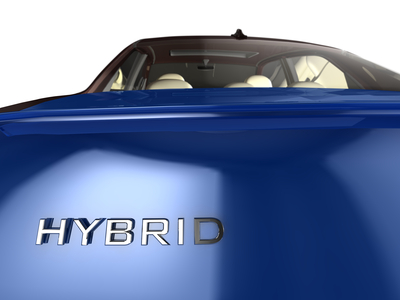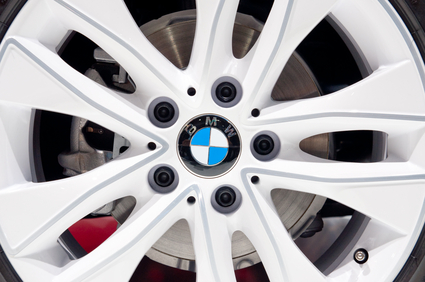|
The appeal of having an environmentally friendly car has led many consumers to purchase a hybrid. With the onset of global pollution and the need to find a healthier solution to transportation, these vehicles became available to keep the air clean and make an individual feel good about their driving habits. They can either be powered by fossil fuels, or electricity, and can put an ease on the amount of gas that is consumed. The market for hybrids was relatively tiny in 2003, but is now booming, with Americans annually buying them by the millions.
Before you decide to purchase a hybrid vehicle, there are a few things you should consider. Firstly, what is your price range? This is a far less painful question now, than it used to be a few years ago. Don’t be fooled, even though prices have become more competitive, hybrid cars are normally set at a higher price than their gas fueled counterparts. However, because this green vehicle can ultimately save you money in the long run, the money you’re saving can offset any monthly car payments if you can’t provide payment upfront; Auto Credit Express can help you with an auto loan calculator that will provide further insights. It is up to you to do research prior to buying about the fuel efficiency of the vehicle. A dealer may not tell you this information and you don’t want to find yourself unpleasantly surprised when you first visit the gas pump. As the price of gas continues to make many drivers pale with fright, you’ll undoubtedly enjoy the perks of driving with minimal 40 miles per gallon. Next, you should consider the importance of the vehicles battery. Find out what state is the battery in and how long it has been sitting? No matter how new a battery is, it can still cause problems if it has been sitting for over three months. Make sure to ask the salesman for the lowdown on the battery, and know what kind of driving you’ll be doing. When searching, take into consideration how unique a hybrid might be. Because they are not as prevalent as a normal ride, the list of specialists and mechanics equipped to handle fixes and inspections may be limited. This will likely lead you to maintaining your car through the dealership you bought it from. When talking to a salesman, find out the details of your warranty, as you may be able to have some work done for free by an authorized dealer. Hybrid cars tend to have better longevity than their gas-guzzling cousins; while they will still need routine maintenance checkups, you won’t have to deal with the pain and money strains of frequent repairs that are necessary to keep many older, traditional vehicles. Because of the reduction in consumed resources and the lessened carbon footprint of these vehicles, both local and national governments often provide tax incentives for hybrid drivers. There are other geographically based rewards as well, like being able to drive by yourself in the carpool lane and cheaper parking. Even those car insurance companies so many of us love to grumble about, like Farmers Insurance, provide financial breaks to those who make the environmentally friendly leap. Now is the fun part, when you select the type or brand you would like to buy. Toyota, Nissan, and Mitsubishi are just a few of the companies to make top class and affordable vehicles for the hybrid consumer. Nowadays, Nissan is the leader in electric-powered vehicle sales with the Nissan LEAF that requires not a drop of gasoline. So feel good as you pull into the driveway with a new hybrid vehicle; after all, you’re doing your part to ensure that both the earth and your wallet retain plenty of green.
1 Comment
Some people are never satisfied. Ignoring the fact that gasoline has done a terrific job of powering motorcycles for many years, they insist on exploring alternative fuels. Of course, there are good reasons. Although a small and lightweight motorcycle is an eco-friendly way of getting around town, gasoline is an imperfect fuel source. Exhaust emissions are top of the issues list. Modern machines are cleaner than those of yore, but still put out a cocktail of smog-creating chemicals— most notably, CO2. The source of the gasoline concerns many people too. Derived from oil, there's a finite supply, and much of it has to be imported. And last, in urban environments where two-wheeled transportation is at its most useful, the noise generated by those mechanical motorcycle parts is a significant problem. Electricity: The Obvious AlternativeA growing proportion of our electricity comes from renewables, but even when generated from coal or gas it's easier to control the emissions at source. An electric motorcycle has zero emissions at the point of use, but it has other selling points for biking enthusiasts. Electric motors generate instantaneous torque, making these machines remarkably quick. The smoothness is also a boon to riders, and the hush benefits everyone but those who love the throb of a Harley. Harley riders may enjoy maintaining their machines, but for most bikers it's a chore. Electric power eliminates many motorcycle parts like spark plugs, oil and filters, so maintenance costs are almost zero and reliability is exceptionally good. As with cars, the Achilles' heel of electric power is battery storage. The energy density of batteries is far less than that of gasoline, meaning range is limited. That's not necessarily a problem in cities though, where riders don't cover great distances, charging points are relatively plentiful, and regenerative braking puts power back into the battery. Brew Your Own?If batteries are such a nuisance, how about generating the electricity on-board when you need it? That's the idea behind fuel cells. These generate electricity from hydrogen, producing water as a byproduct. As Forbes reports, the technology is well established— car manufacturers like Honda and BMW have had fuel-cell development cars running for several years— and a number of motorcycle manufacturers are working on fuel-cell bikes. But if you want to buy one, you'll need to wait a while. Other fuel sources have been tried. An Argentinean motorcycle company, Zanella, promoted a bike that would run on compressed natural gas, while several enthusiasts have experimented with biodiesel. As a fuel, biodiesel is interesting because it's renewable, but the downsides are noise and exhaust emissions. This is Not Science FictionElectric motorcycles are available now from companies like Evolve, Brammo and Zero. There is more evidence that these are practical alternatives to the old gasoline machines. Consider this: Gizmag.com reports that police forces from Monterey, Calif. to London, England, have tested and are using electric motorcycles. So what's the future for eco-friendly motorcycles? Electric power is here but range concerns will likely hold back long-distance cruisers. Those folks will have to wait for fuel-cell bikes, but for city use the green motorcycle should satisfy most riders. Electric cars have come a long way, but there's a reason why hybrids are still topping the charts and pushing EVs out of sight. Hybrids make sense financially and in terms of range — and they're obviously eco-friendly. On the other hand, electric cars are pricey, time consuming and still in the new stages of development. Either way, you're driving green technology, and that's better than nothing. But realistically speaking, here are four reasons why hybrids win: Electrics Don't Go the DistanceNo matter what anyone says, when it comes to range, EVs just aren't there yet. Out of the newest generation of compact and mid-size electrics, the 2013 CODA gets about 88 miles per charge while the Ford Focus Electric averages 76 miles per charge and the Nissan Leaf came in at 73 miles per charge, according to Fueleconomy.gov. That can cover the average American's commute, but what about road trips? With seven to 12 hours of charging time, electric cars aren't reasonable for anything but a short commute. Until electric cars can meet society's needs, they won't compare with hybrids. The 2013 Toyota Prius c can run 428 miles on a tank, and uses regenerative brakes to recharge its batteries. If you're looking for a used Toyota in Arlington, the 2010 Toyota Prius gets 536 miles per tank, according to Fueleconomy.gov. Yeah, that's more than the newest all-electric types, and despite driving an older model, you'd still be driving clean, green technology. It's a Crime How Much They CostLet's talk price. First, let me show you something. MSRP for EVs
MSRP for Hybrids
Do I need to say anything more? Price wise, even with the potential government tax credits (if qualified, totaling to about $7,500), EVs still can't keep up with hybrids. Charge Time — Too Much TimeElectric technology is improving that I can't deny, but how much? Over the years, the time it takes to charge an electric car has diminished from 10-12 hours to four to seven hours — a big improvement but still — HOURS. Even if the technology is reducing our dependence on foreign oil supply and can help reduce greenhouse emissions, who has hours to fuel up? Until you can get a full charge while grabbing your soda and a pack of gum in the convenience store, electrics won't match up with hybrids. Way Too Many Other OptionsIn general terms, the green movement groups across America are what lead people to electric and hybrid vehicle options. But there are also those who want a form of transportation that doesn't cost them hundreds at the gas pump. In looking for a way to save the planet, reduce their personal carbon footprint and save money at the pump, people are interested in seeing what else is available. In comes flashy technology about all-electrics. But here's the catch. Technology is improving across the board. Conventional cars are also seeing advancement, and in order for electric technology to keep up they're going to have to speed up. The eco-friendly car movement in the automobile industry has seen a shift toward the use of more environmentally sustainable fuels, such as electricity and gas. Cars such as Toyota’s Hybrid, that has a mixed fuel engine using both petrol and electricity, have been a huge success, with people wanting to make environmentally smarter decisions when it comes to buying a new car. Model S, Prius and SpyderEco-friendly cars have gained another win with American car manufacturers; Tesla’s Model S is being awarded Motor Trend’s 2013 Car of the Year. The Model S is the first car with no internal combustion engine to win this coveted award, marking a significant moment in the push for environmentally friendly cars. The Model S is ready to reserve in Australia and deliveries will begin mid 2013 with a $6000 reserve payment. For those looking for something sporty, in 2014 BMW will be releasing its i8 Spyder with a dual electric/petrol engine with prices expected to be high. Despite the green progress, there are still significant issues reducing the number of consumers wanting to move into the eco car market. Toyota recently recalled over 2.7 million of its second generation Priuses due to issues with the water pump and steering. This follows previous Toyota recalls due to other manufacturing defaults. Toyota share prices plummeted because of the recall. Eco-Friendly ChoicesFor drivers who are currently unable to invest in the hybrid or electric car market, it is still possible to lower the impact you and your car are having on the environment by following some simple guidelines:
By following these simple guidelines you will significantly reduce the environmental impact that you are having on our planet and save money at the same time. |




 RSS Feed
RSS Feed
